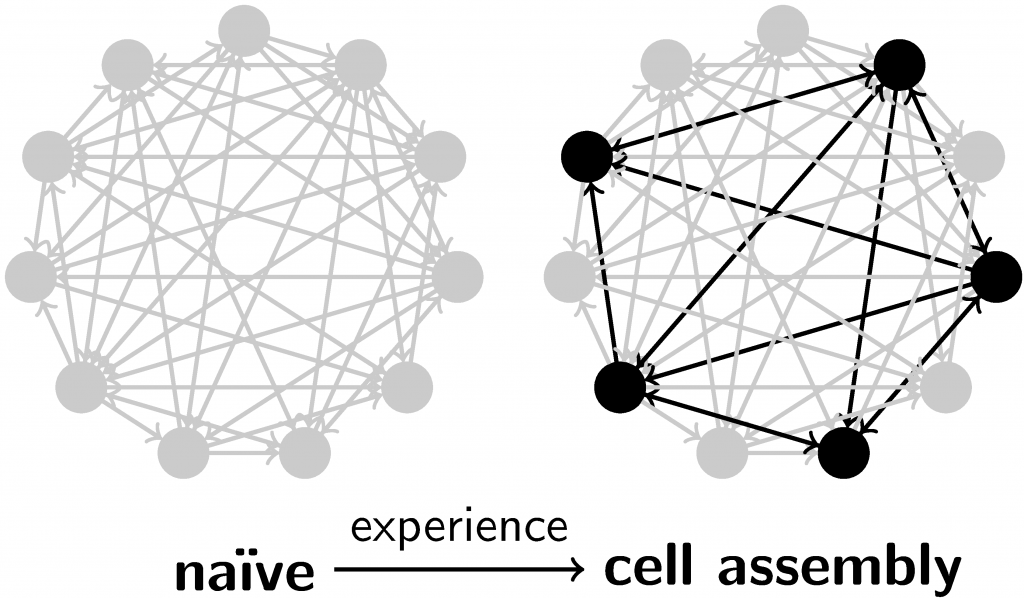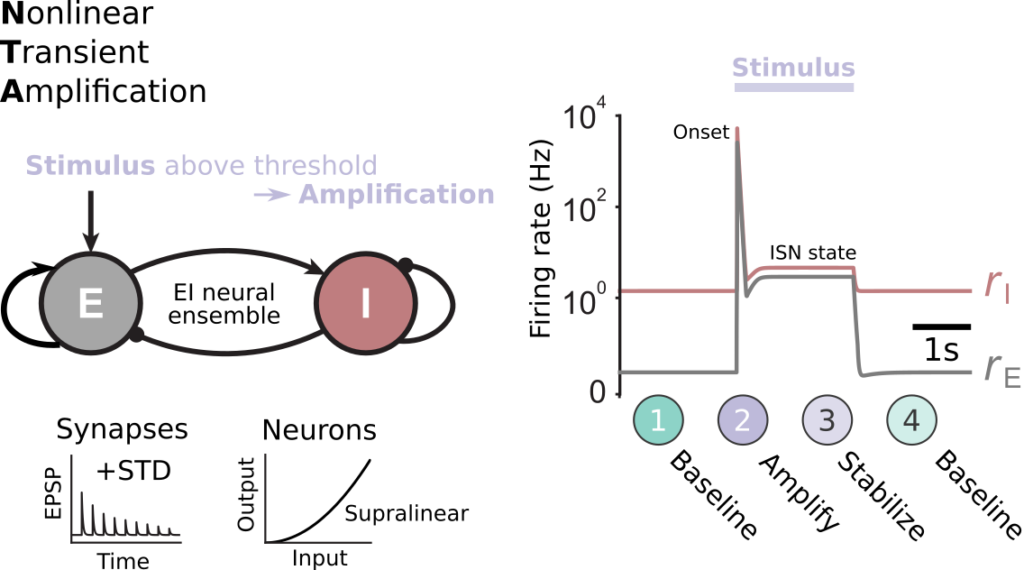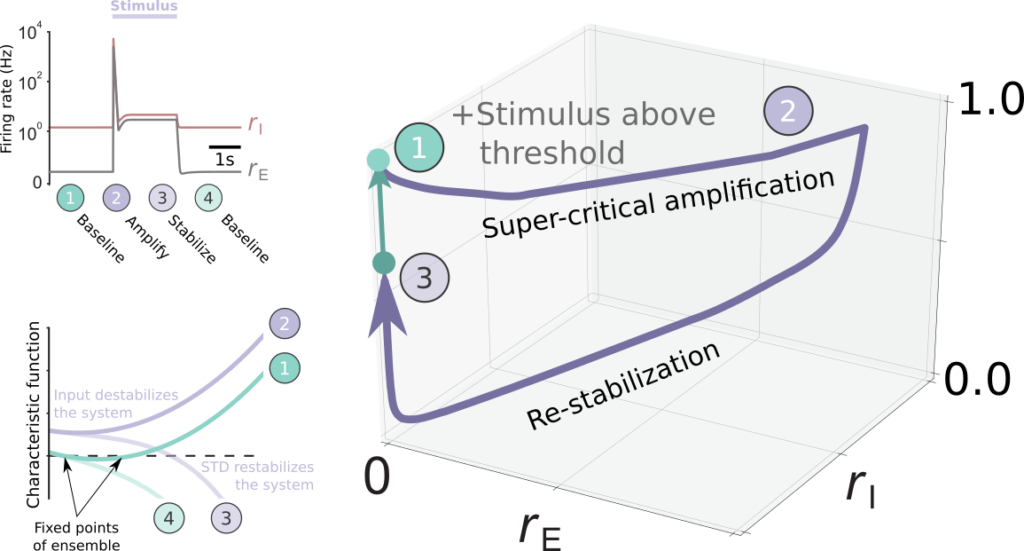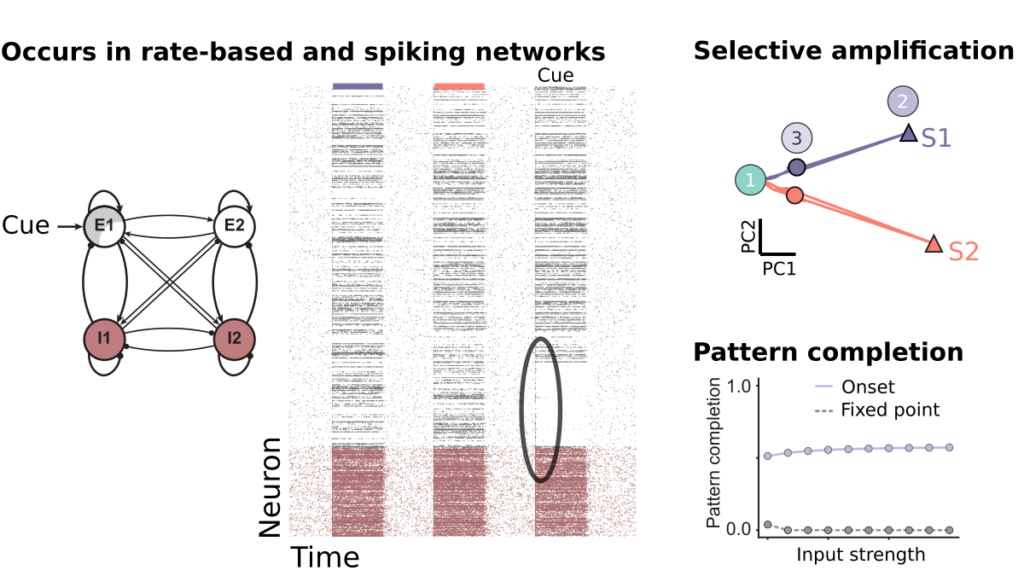Update (21.12.2021): Now published https://elifesciences.org/articles/71263
I am pleased to share our new preprint: “Nonlinear transient amplification in recurrent neural networks with short-term plasticity” led by Yue Kris Wu in which we study possible mechanisms for transient Hebbian amplification.
https://biorxiv.org/cgi/content/short/2021.06.09.447718v1
Hebbian assemblies offer a compelling explanation for how neuronal ensembles can amplify specific activity patterns through symmetric excitation. The problem is that positive feedback is notorious for pathological run-away activity and persistent attractor states.
Inhibition and non-normal connectivity offer possible solutions. However, inhibition tends to reduce amplification gain, impedes pattern completion, and non-normal connectivity assumes strongly asymmetric connectivity at odds with the Hebbian doctrine. Here, we revisit the question of amplification in neural ensembles by studying it in supralinear network models. We propose Nonlinear Transient Amplification (NTA), a simple yet plausible mechanism that reconciles symmetric connectivity with transient amplification.
NTA has two phases. Initially, positive excitatory feedback amplifies stimuli above a critical threshold rapidly (2). Subsequently, short-term plasticity re-stabilizes run-away dynamics and drops the ensemble into an inhibitory stabilized network state (3).
By characterizing this mechanism analytically and in simulations, we establish that NTA yields stimulus selective amplification and is thus well-suited for speedy information processing also in spiking nets. Finally, NTA is backward compatible with SSNs. Feedback welcome.




